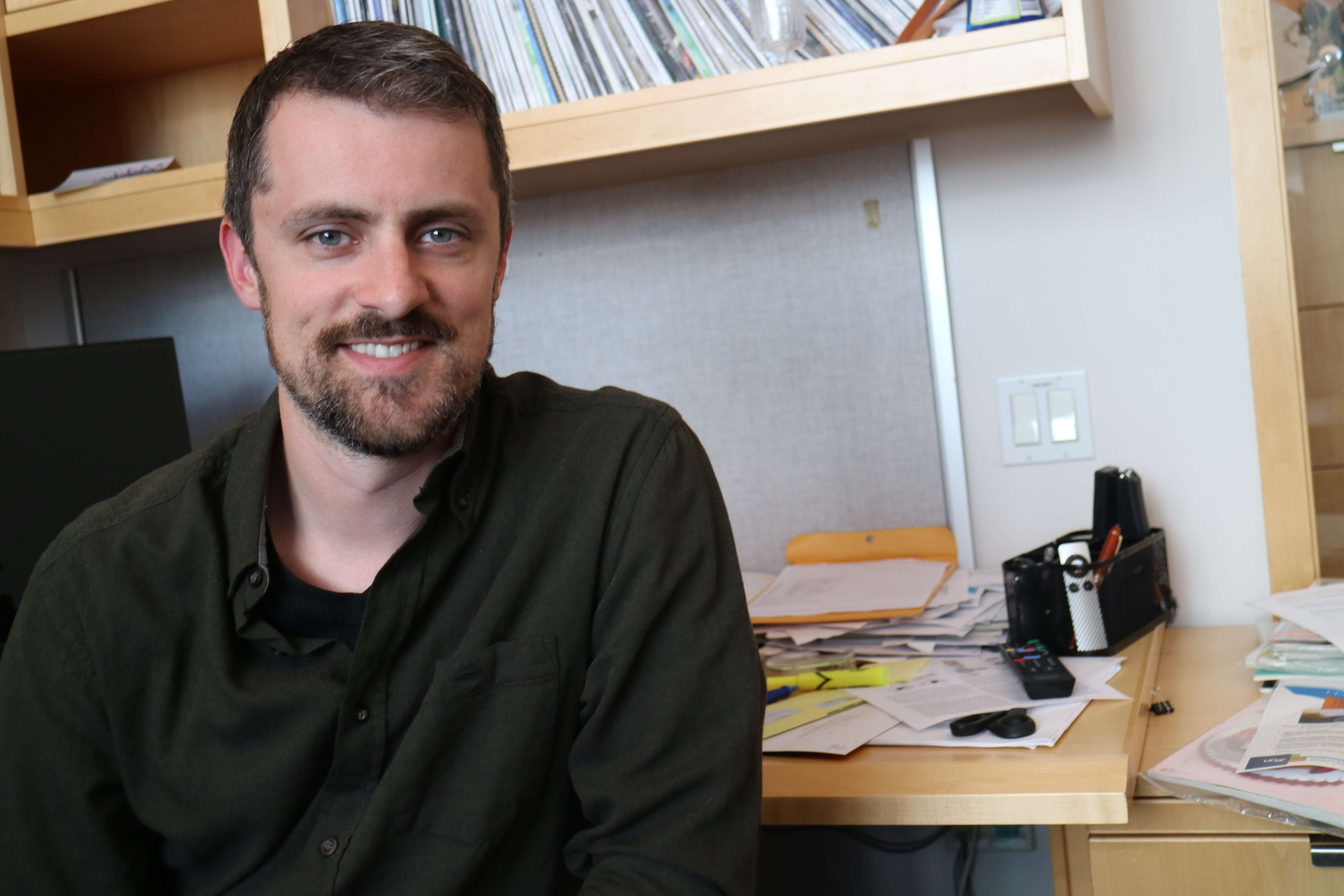
Q: What have you created or discovered that you are most proud of?
A: We discovered proteins that we call “anti-CRISPRs”. CRISPR is famous for gene editing, but what it really does in nature is act as an immune system that protects bacteria from viruses. The only reason CRISPR exists is because bacteria use it to cut viral DNA. Scientists program it to cut DNA that they want to manipulate, because it is like a programmable pair of scissors; you can tell it what to cut. What it’s actually cutting in nature are these bacterial viruses that we study. So we have discovered many examples of anti-CRISPRs, which are essentially proteins that the virus makes to stop the scissors. So if the scissors are aimed at you and you’re a virus, you can throw a wedge into the scissors and stop them from cutting your DNA. We’ve discovered a number of these anti-Crispr proteins that stop Crispr from working. We focus on understanding their mechanism of action, discovering more, and understanding how they evolved.. We are also using them in human cells to stop gene editing, which sounds counterintuitive, but the idea is to control it so that we can insure it’s very accurate.
Q: At the end of the day, why does your work matter?
A: We are driven by a fundamental curiosity for how biological systems function, and these bacterial viruses that we study have been teaching us new aspects of biology for decades. They continue to reveal completely new mechanisms for how things work. That’s really what it’s all about for us. It’s understanding how these bacteria live and how they’re killed, specifically understanding all the molecular factors that go into that interaction. Bacteria and viruses run into each other in our body millions of times per second. To me this is more exciting than some of the biotechnologies that have come from this, but of course those have great promise.
Q: Outside of work, what do you do to relax?
A: I used to relax by playing a lot of sports. Now we go on hikes around our house. My wife and I live on a marina and we have a pool, so we like to sit outside and go to the pool. We like to hang out with our cat, Rosie. She was named after a famous scientist, Rosalind Franklin :) . I also travel a lot for work, but it’s fun.
Q: What situation do you think you’d feel the most out-of-place in? What is something that makes you uncomfortable?
A: I’m best around people. So maybe I feel the most out of place when I’m working alone. I’m an only child so I’ve been used to it, but I notice that I like being at work because I like talking to people in my lab. When I take a day and work at home, I get a lot more done, but I’m super bored.
Q: In 100 years, what do you want to be remembered for?
A: As a microbiologist, my main interests are killing bad bacteria that we used to have good treatments for. We had antibiotics that were effective and now they are not very effective for a lot of bacterial infections. There are many superbugs, and they are nearly impossible to kill. We are returning to a pre-antibiotic era, like the 30s and 40s. So as far as new discoveries go, while we don’t exactly look for drugs, as many others do, we do try to discover the ways that nature has devised to kill the bacteria. I think that this sort of basic exploration will lead to new strategies for helping protect us from bad microbes. I would like to be remembered for making new discoveries that change how we view bacterial-virus interaction. I don’t think we are there yet, but it is an exciting challenge.
Journalism & photography credit: Alexa Rocourt